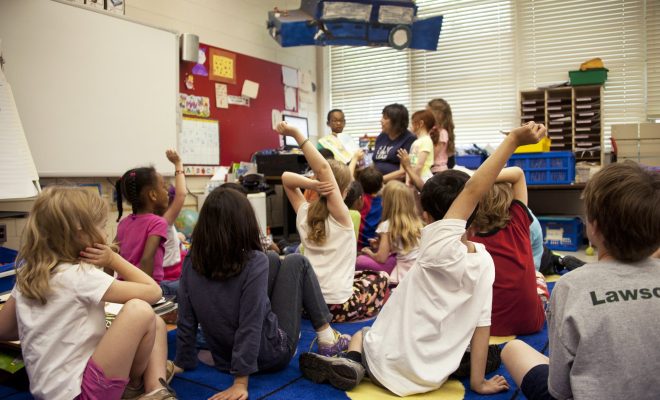24 Strategies to Support Students Who Are Easily Angered

Are you looking for strategies to support students who are easily angered? If so, keep reading.
1. Let the learner take a break to regroup when they are becoming angry, annoyed, or upset.
2. Teach and urge the learner to use problem-solving skills: (a) find the problem, (b) find goals and objectives, (c) create strategies, (d) create a plan of action, and ( e) carry out the plan.
3. Teach the learner decision-making steps: think about how others may be influenced, think about consequences, carefully consider the unique situation, think of various courses of action that are possible, think about what is ultimately best, etc.
4. Provide a positive/calm environment (e.g., positive remarks, acknowledgment of successes, quiet communications, etc.).
5. Look for the warning signs (e.g., arguing, loud voices, etc.) that the learner is getting upset or angry. Intervene to change the learning experience to prevent more severe problems from happening.
6. Connect with the learner’s parents (e.g., notes home, phone calls, etc.) to disseminate information about the learner’s progress. The parents may reinforce the learner at home for demonstrating self-control at school.
7. Provide consistent expectations.
8. Conference with the learner’s parents, a school official, a social worker, etc., about the learner’s behavior if it is causing them to have problems getting along with others.
9. Remove the learner immediately from a situation when they begin to be angry, annoyed, or upset.
10. Solidify appropriate behavior by providing a full schedule of daily activities. Stop lag time from happening when the learner would be likely to become involved in learning activities that would cause them to be angry, annoyed, or upset.
11. Assess the appropriateness of the academic task to ascertain (a) if the task is too easy, (b) if the task is too complicated, or (c) if the duration of time scheduled to finish the task is sufficient.
12. Give the learner alternative learning activities, games, etc., in case some learning activities prove upsetting.
13. Teach yourself and others about ADHD to increase comprehension and accommodation of impulsive behavior.
14. Connect with the learner’s parents, agencies, or appropriate parties to inform them of the learner’s problem, identify the cause of the problem, and discuss potential solutions to the problem.
15. Teach behaviors that promote self-control. Let the learner gain their composure before continuing a learning experience (e.g., placing hands on desk, sitting with feet on the floor, making eye contact with the person who is talking, etc.).
16. Let the learner voice their opinion in a situation to avoid becoming angry or upset.
17. Urge the learner to create an understanding of themselves and those around him/her. Get the learner to periodically step back and ask themselves, “Am I behaving too aggressively?”
18. Minimize the emphasis on competition. Repeated failure and frustration may cause the learner to become angry, annoyed, or upset.
19. Teach the learner about ADHD and the need to self-monitor behavior.
20. Make sure that all teachers and staff who have contact with the learner understand the importance of keeping consistency in the discipline of the learner.
21. Consider using a classroom management app. Click here to view a list of apps that we recommend.
22. Consider using an adaptive behavior management app. Click here to view a list of apps that we recommend.
23. Consider using Alexa to help the student learn to behave appropriately. Click here to read an article that we wrote on the subject.
24. Click here to learn about six bonus strategies for challenging problem behaviors and mastering classroom management.






